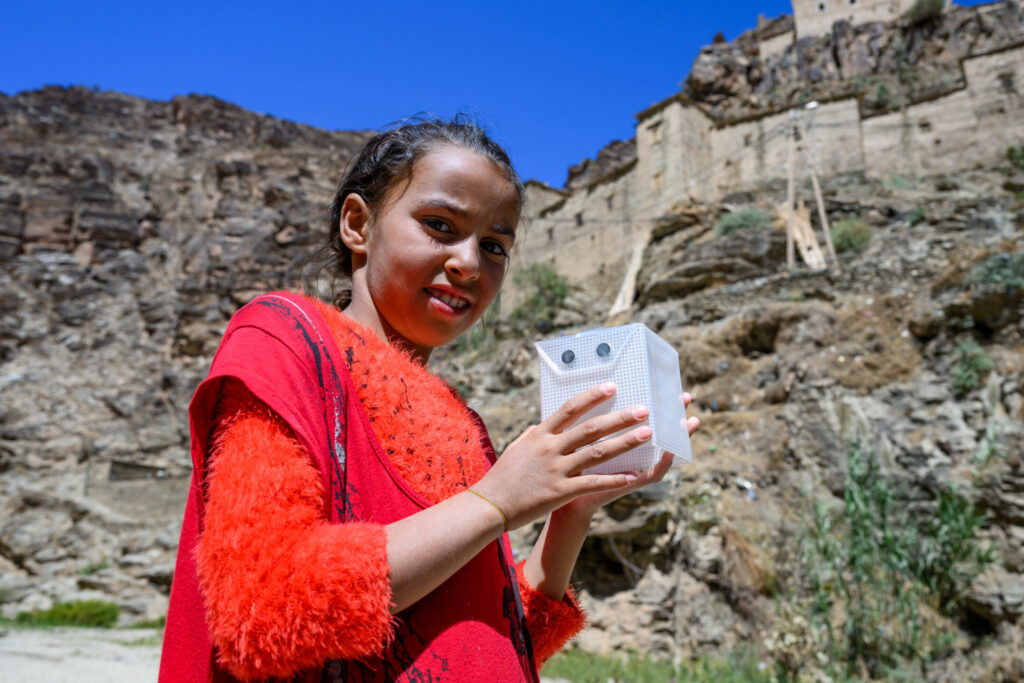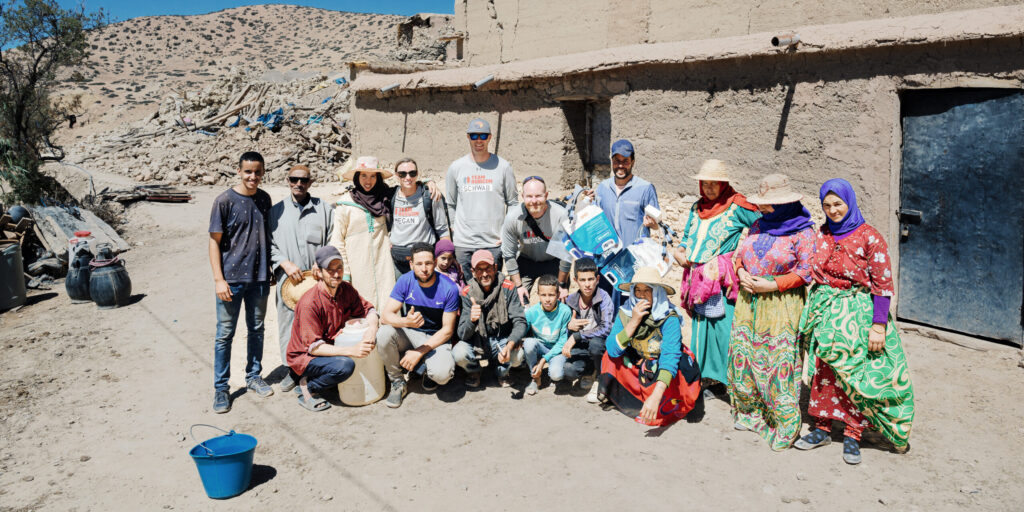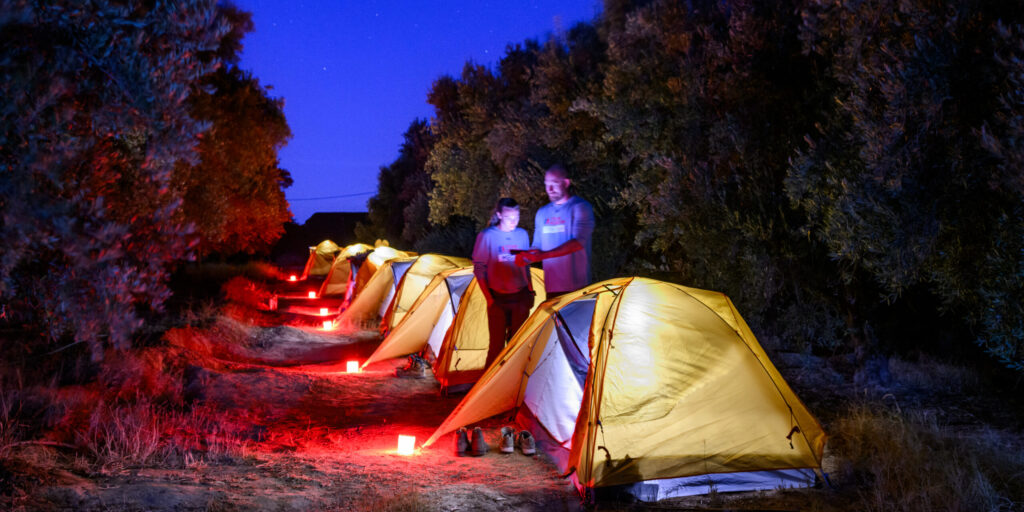During and after disasters, it is women and children who face the most threats and have the worst outcomes, according to Dui Turner, a 25-year U.S. Air Force veteran and Senior Fellow at Women in International Security. “Generally speaking, around the world, the data indicate women and children are going to be the most vulnerable populations.” Put simply, disasters most harm those already at most risk of harm, and women’s vulnerability in humanitarian crises skyrockets, particularly in the kinds of remote, under-resourced communities where nonprofits, like Team Rubicon, serve.
When women and girls are impacted or displaced by conflict, disasters, and humanitarian crises, they are often left without protective barriers, such as an intact family unit, and become especially vulnerable. According to the International Planned Parenthood Federation, 70% of women in humanitarian settings are likely to experience gender-based violence.
After a devastating earthquake ravaged much of Morocco in 2023, rural areas witnessed a stark rise in gender-based violence, reported Al-Jazeera. Yasmina Benslimane, a Moroccan activist promoting gender equality, told the news outlet, “It’s absolutely crucial to have a gender-sensitive approach to disaster relief. According to [the UN Development Programme], women and girls are 14 times more likely to die during disasters than men.”

Team Rubicon volunteers—known as Greyshirts—bore this in mind when they deployed to rural Morocco in response to the quake. Because their central mission was to deliver critical water, sanitation, and hygiene (WASH) aid to remote villages, Greyshirts carried portable, gravity-fed water filters with them. They also brought small, lightweight solar lamps with them to distribute—devices that found instant fans among the women of the villages.
“Darkness is a risk factor,” explained Turner. “The great thing is that any amount of light can break the darkness. It is a feeling of safety because light really does deter predators.”
Light does much more than just dissuade violence. According to a 2018 study conducted in refugee camps around the world, adequate lighting can lead to improved health and sanitation practices and conditions, greater educational and economic opportunities, better outcomes for families and interpersonal relationships, and even lower wildfire risk. That same study, however, found that access to such lighting often neglects the female half of the population.
“This is why the gendered perspective is a skill,” emphasized Turner, underscoring the complexity of the effects of a disaster as well as the humanitarian assistance provided afterward. “And really, you cannot generalize the impact; this isn’t about men versus women; it’s not a zero-sum game.”
Greyshirt Megan Painter, an ER nurse and member of Team Rubicon’s Morocco response, witnessed the extra challenges women and girls faced after the earthquake. With electricity out, and contaminated water holding the possibility of being a major vector of disease, getting the water filters into villagers’ hands was essential. Yet it was the tiny lamps the Greyshirts brought along that promised outsized impact for—and did double duty.
“In some villages, the lamps acted as an icebreaker, allowing us to be more quickly accepted in the community so we could actually provide the WASH support we were there for,” said Painter of the well-received solar lamps.
Once the village women understood the Greyshirts’ primary mission—to provide their community with safe water—they lined up, keen to learn how to use the filters.
“Women do the cooking and food prep, wash the clothes, keep the home clean, manage the children, and generally anything to do with healthcare,” Painter said. “It’s an easy sell to women. We thought we’d get a handful of women, but basically every girl and woman showed up.”
Together, the tiny solar lamps and portable water filtration systems began improving WASH and outcomes for women. While the lamps may help with women’s vulnerability in humanitarian crises, the benefits of WASH tilt towards women and girls but positively affect everyone in the village: A single water filter can provide safe and clean water for up to five people a day, purifying thousands of gallons of water over the three to five years they’re designed to last.

Team Rubicon’s WASH program does more than merely provide filters, though. Greyshirts didn’t just show up and drop off the filters; they took the time to teach basic concepts of water safety so that, even if the filters break, the community maintains the knowledge.
“They’re already coming up with ways to make the filters stretch and last as long as possible,” said Painter. “They’ll notice that their community is less sick, their kids have less diarrhea and less disease, and they’ll source for their own replacement filters when they need to.”
By showing up en masse for the water filtration training and then passing what they’d learned on to others, the Moroccan women amplified the overall impact of the Greyshirts’ mission.
“WASH has community-changing potential,” Painter explained. “Transmission of knowledge is key. These are women who have seen infant disease rates increase; are responsible for clean food and clothing for their families. They’re quick to inform all the women in their lives: get it to one woman, and it will spread.” The benefits of the water filters, therefore, accrue among the entire community and beyond, extending the positive impact for a long time and into areas the Greyshirts never reached.
Key to these communities’ recovery, especially for women and girls, is fostering autonomy and stemming the helplessness and trauma that frequently accompanies disaster. Tiny water filters and personal lamps help provide the confidence and pride in the community that makes better days possible.
“The highlight is that there are simple solutions for wicked problems in gendered spaces after a crisis that are easily available and not limited to women and girls,” said Turner. “These disasters affect everyone, and the good thing is that so do the solutions.”




